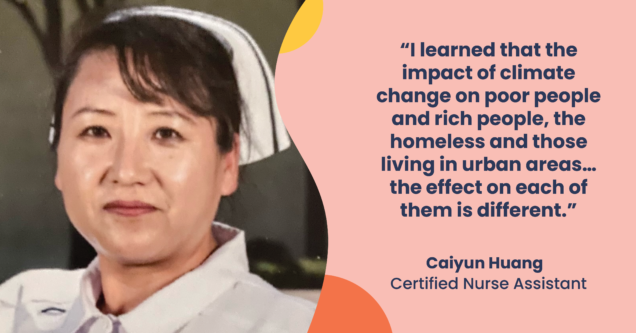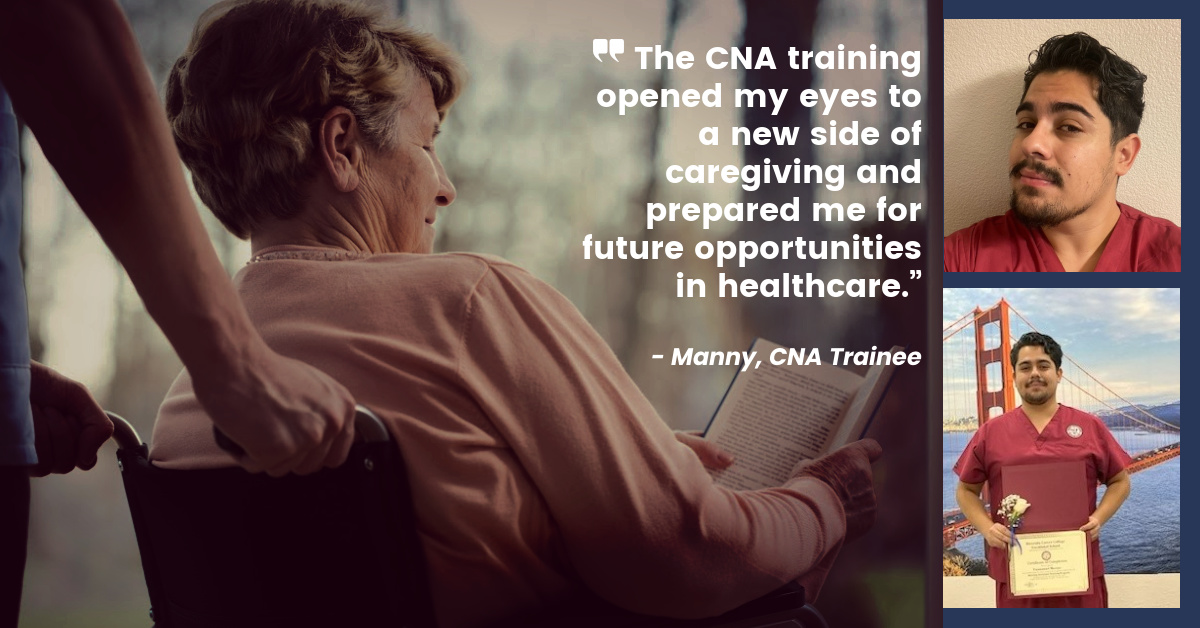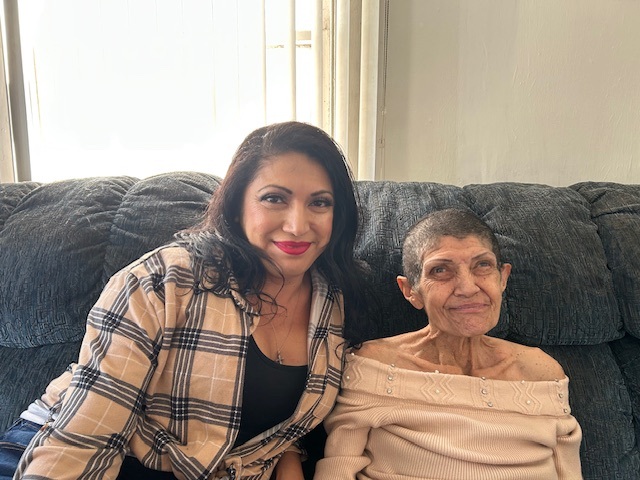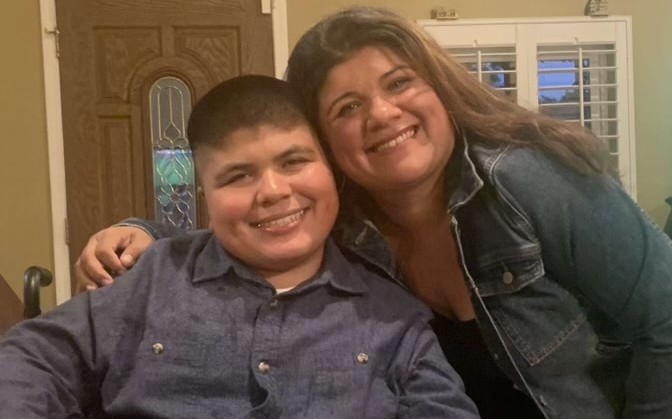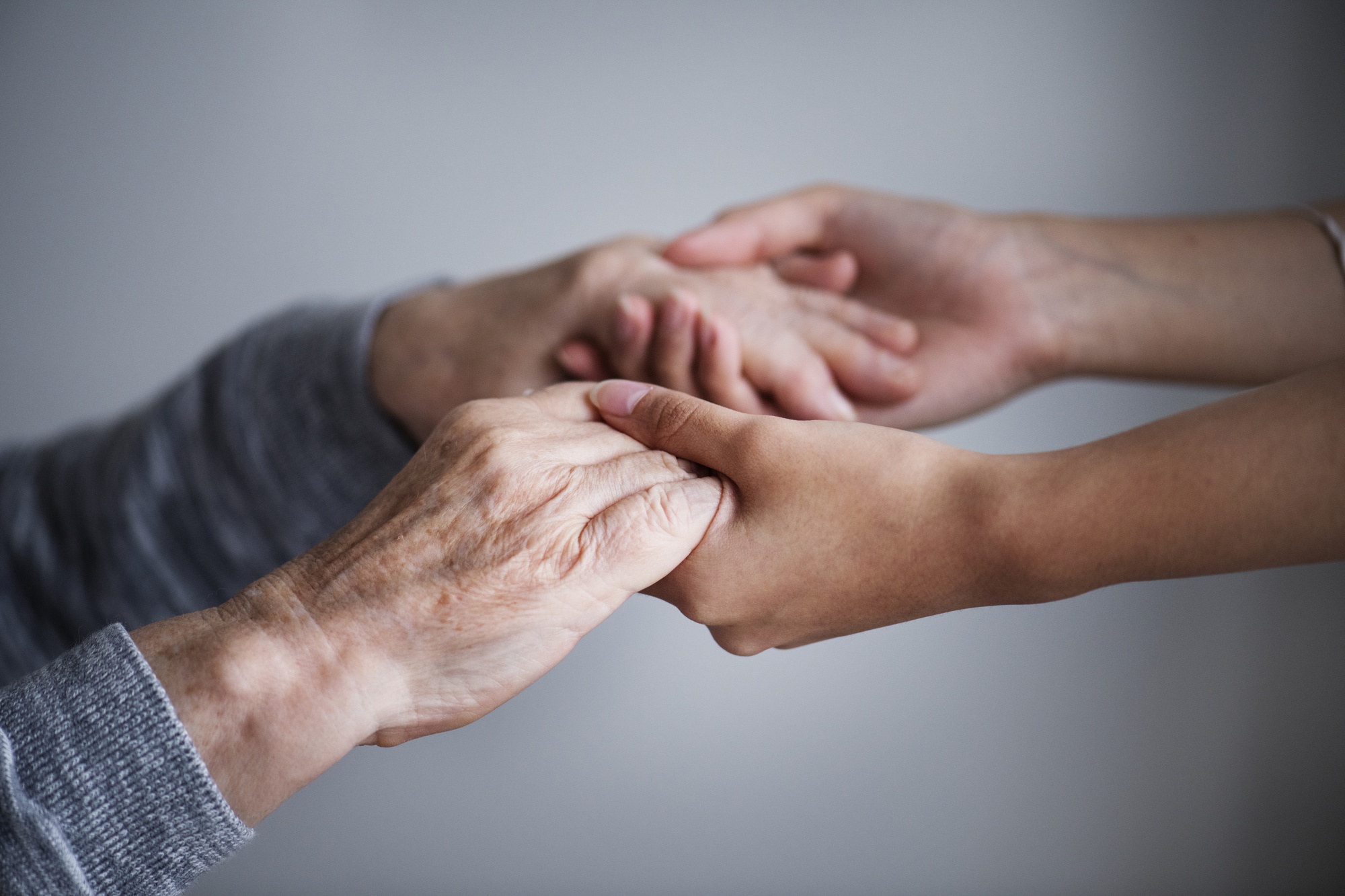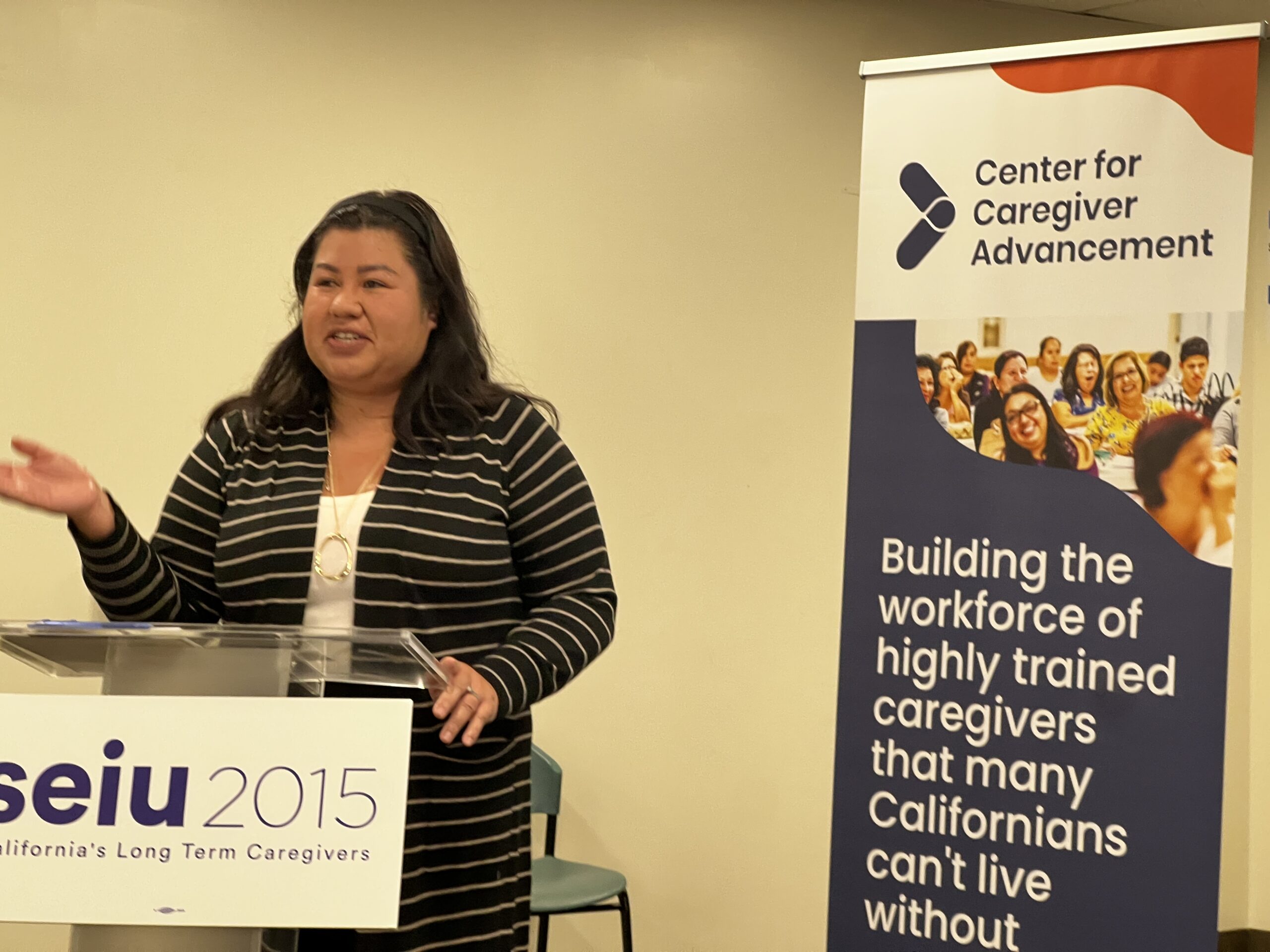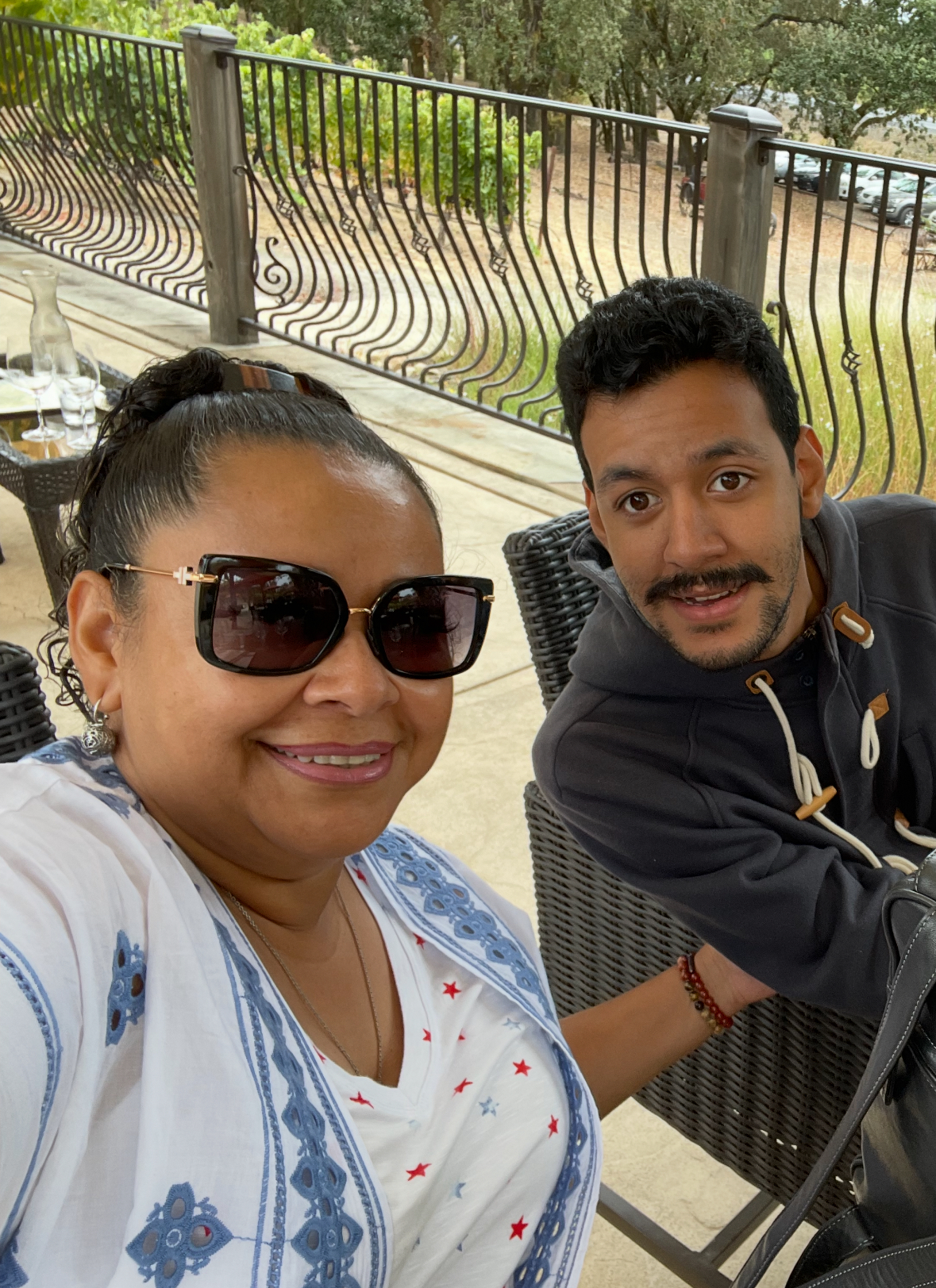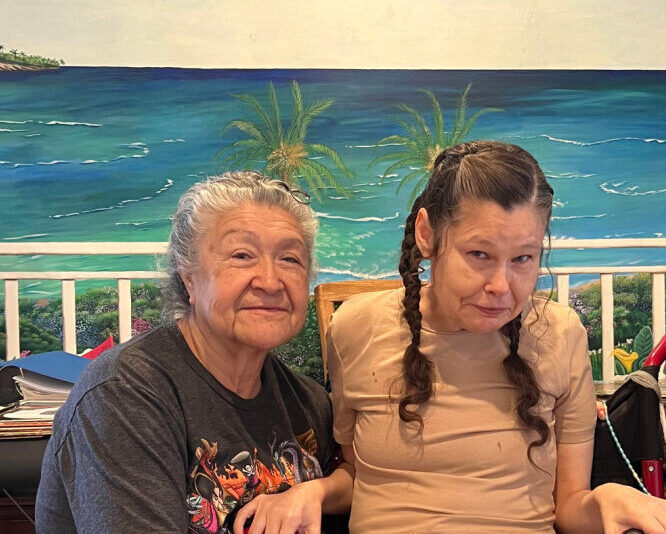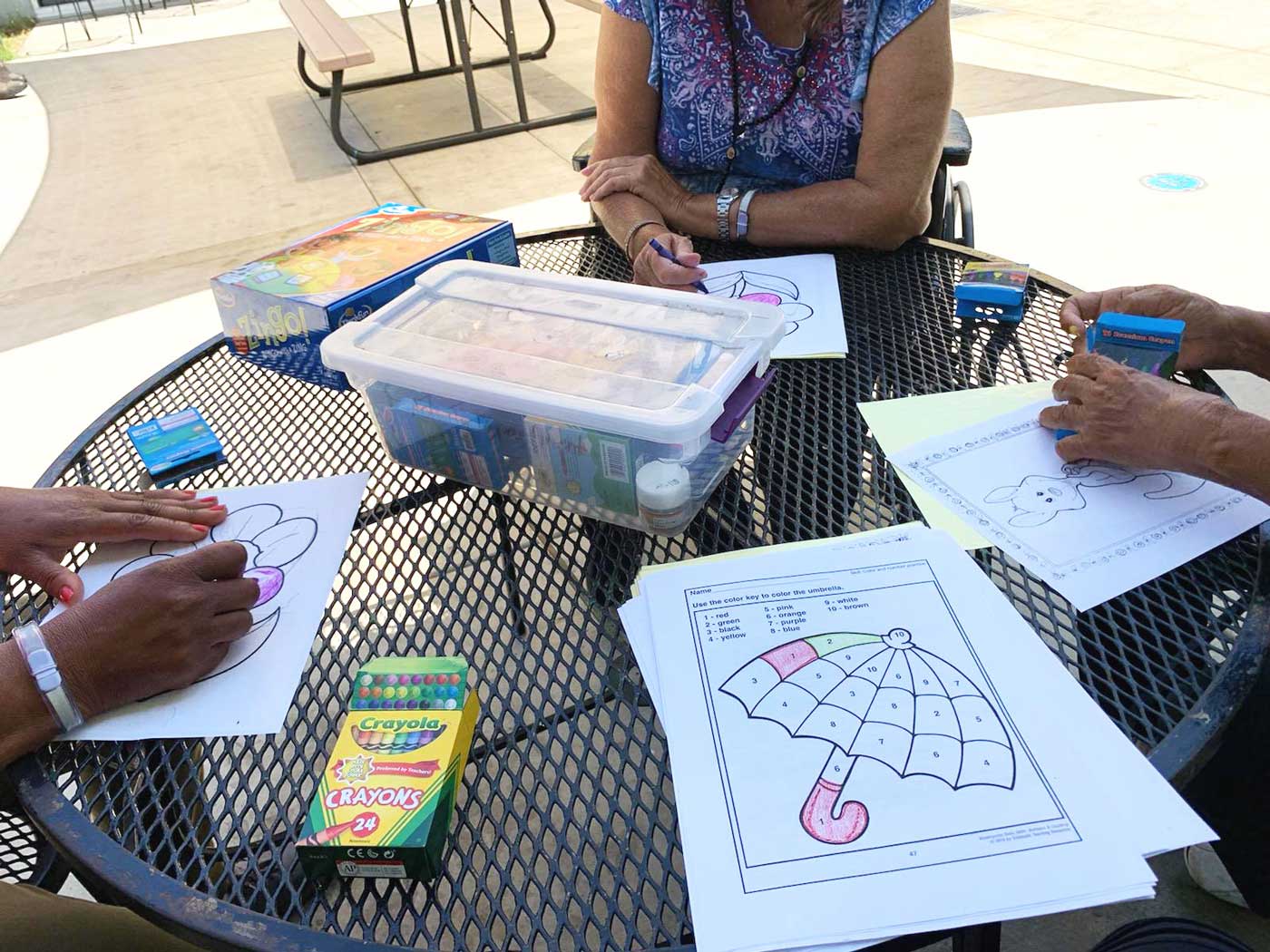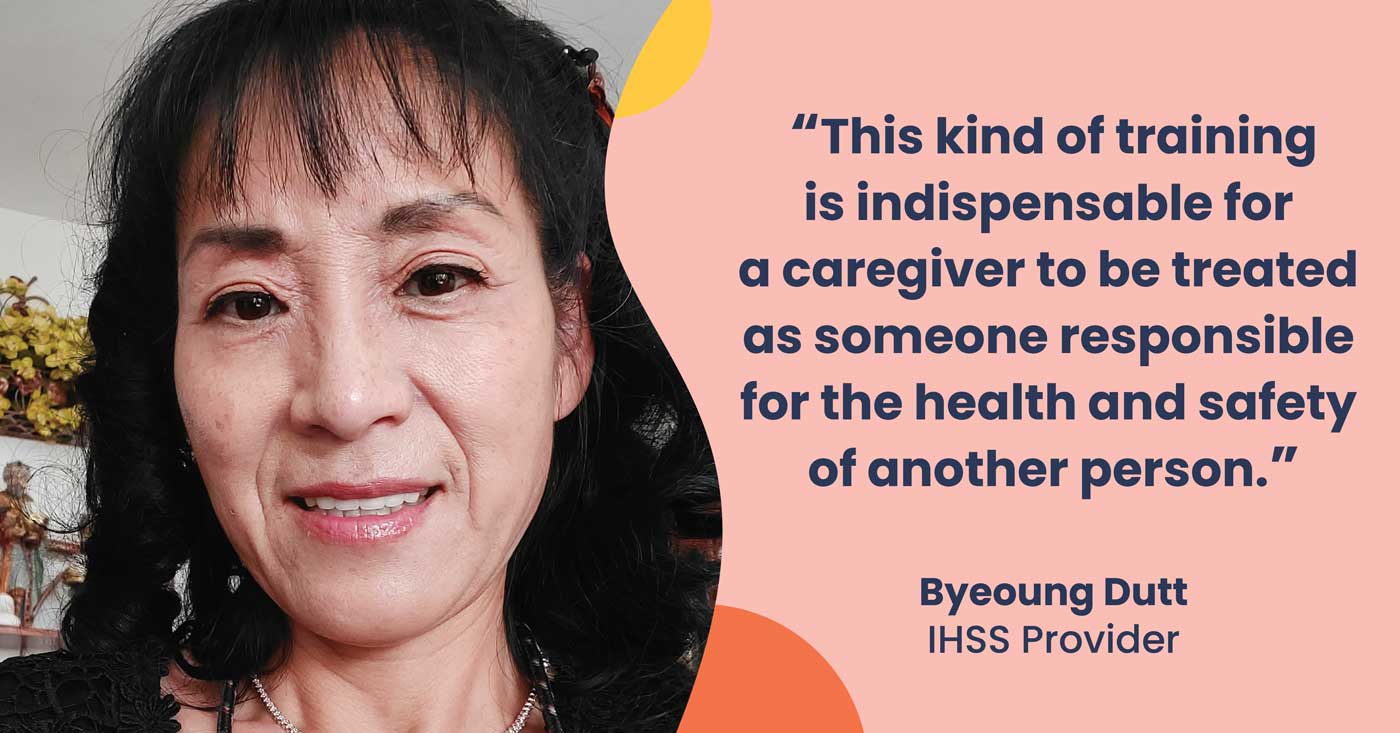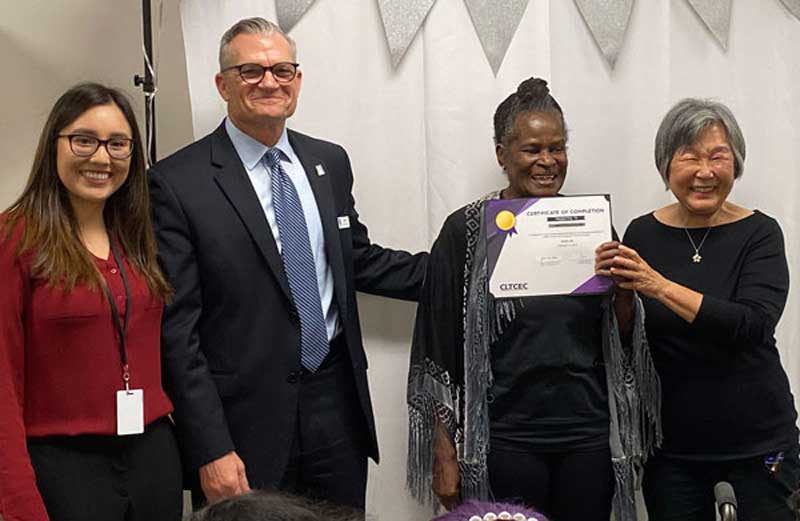Nursing home worker shares lessons learned from emergency preparedness and resiliency training.
The story of how students and teachers survived a tragic earthquake in China taught nursing home worker Caiyun Huang the value of emergency preparedness. The 7.9-magnitude earthquake in Sichuan leveled entire towns and killed more than 90,000 people. School buildings collapsed. But the school that Caiyun remembers fared better than most because “they were prepared.” The school principal had invested in infrastructure improvements and organized emergency drills every year.
“So when the earthquake happened, they knew what to do,” Caiyun recalls.
This was the story in Caiyun’s mind when she enrolled in CCA’s Caregiver Resiliency Teams Project, which is a specialized training program to help caregivers prepare for, respond to, and recover from climate-related emergencies.
“We need to be prepared for when an emergency happens,” Caiyun says.
Caiyun is one of 101 nursing home workers and In-Home Supportive Services (IHSS) providers in California who completed the six-week pilot training in April. The program is the first of its kind in the nation and is aimed at building resiliency and emergency-preparedness skills in the caregiver workforce. The second cohort of caregivers will begin training in July.
Caiyun is a Certified Nurse Assistant (CNA) at Chino Valley Healthcare Center in Pomona, California. She was a lawyer in China who had dreams of becoming a medical professional. When she came to the United States a few years ago, she enrolled in a CNA certification course to start her new career in healthcare.
As a nursing home worker, she knows some of her skilled nursing facility’s emergency procedures: how to shut off water, gas and electricity, how to evacuate residents, and where to find the fire extinguisher. But she knows that’s not enough.
CCA developed the curriculum for the Caregiver Resiliency training specifically to address the gaps in knowledge and skills among caregivers, who are often the first to respond in climate-related emergencies such as extreme heat, power outages, and earthquakes.
Aside from first aid and CPR training, the curriculum includes emergency planning for individuals with access and functional needs, making an evacuation and shelter plan, putting together emergency kits, and learning protective actions during climate-related situations such as how to cool down during an extreme heat wave or figuring out backup power options for life-support devices.
The sessions also delve into how climate change impacts communities differently, particularly low-income, immigrant, and Black, Indigenous and People of Color (BIPOC) communities.
“I didn’t know about climate change and how it affected people in poverty, with disabilities, people living in urban areas, homeless, low-income,” says Caiyun. “I thought before the training that climate change affects everyone the same. But during the training, when the teacher gave us the data, I learned that the impact of climate change on poor people and rich people, the homeless and those living in urban areas… the effect on each of them is different.”
Climate change is a complicated topic, with many factors that come into play, including where we live and what access we have to resources, says Corinne Eldridge, CCA President & CEO. “Climate-related emergencies adversely affect our health and the health of our communities. Our hope with this training program is that caregivers will learn how we can adapt the way we work and live so that we can build resilience as caregivers and as a community,” she says.
Now that Caiyun has completed the caregiver resiliency training, she is passing on the information to her teenage daughter, who started understanding the importance of emergency preparedness while listening in on her mother’s classes.
“Because of this training, I know how to help our residents (in an emergency) and I know how to protect myself,” says Caiyun. “I hope this can continue and more and more healthcare workers can take this class. This is so helpful.”
The Center for Caregiver Advancement’s Caregiver Resiliency Teams Project is part of the California Workforce Development Board’s High Road Training Partnership, which is funded through California Climate Investments, a statewide initiative that puts billions of Cap-and-Trade dollars to work reducing greenhouse gas emissions, strengthening the economy, and improving public health, and the environment — particularly in disadvantaged communities.



